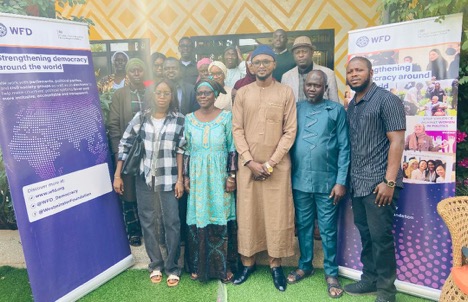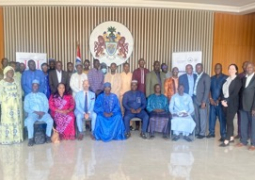
Addressing the gathering held at Bakadaji, Tabou Njie Sarr, Country Director of Westminster Foundation, reminded that WFD is helping to make countries' political systems more accountable.
“In an accountable political system, citizens can hold people with power responsible for their decisions, usually by parliament and civil society. This means that there are consequences when things go wrong and lessons are learned when things could be improved.”
This, she added, in turn helps them to better deliver public services, saying Post Legislative Scrutiny, as it is commonly named, is the practice of monitoring the implementation and evaluating the impact of laws.
“The aim is to ensure that laws benefit citizens in the way originally intended by lawmakers. PLS is often carried out by parliamentary committees with support from national parliamentary staff, and it's very prominent all around the world in parliaments. As PLS is recognized as an integral part of the legislative cycle, it is now emerging as a new dimension within the legislative and oversight role of parliament.”
For his part, Khalipha Mbaye, Clerk of National Assembly, who presided over the opening, acknowledged the efforts of WFD in parliamentary issues over the years by being their supporter and partner in strengthening the institution of parliament as well as building the capacity of board members and staff over the years.
“Of course, PLS as post-legislative scrutiny is crucial as far as contemporary parliament is concerned. And we equally recognize WFD in its drive, I think, since your previous country rep initiated this process of how best do we institutionalize such an important tool in our parliamentary dispensation. This is quite laudable and is something that we are taking very seriously.”
To this end, he thanked WFP for their efforts and for believing in the project to make sure that at the end of the day this kind of very important novel tool in parliamentary operation is structured and institutionalised in ‘our own parliament as well.’
That, he added, is the reason why they are more committed as office of the Clerk to making sure that such a tool is also institutionalised in parliament.
“It's one thing for parliament to pass a law but it's another thing for parliament also to be proactive to check the impact of the law in society as well as to identify the loopholes or the gaps in the law for the betterment, to better improve on the law as far as the legislative function or mandate of the legislature is concerned. PLS is very crucial as far as our structure is concerned and it's something that we as technicians and office of the Clerk are very much in support of and are ready to institutionalize it in our own dispensation.”
The opening was followed by a technical session where participants engaged in conversation on the subject.





